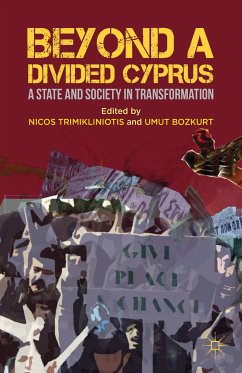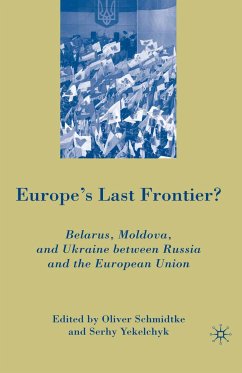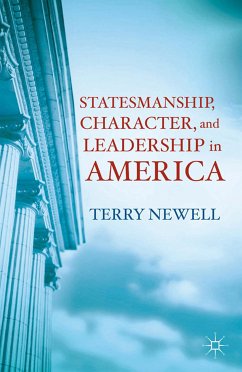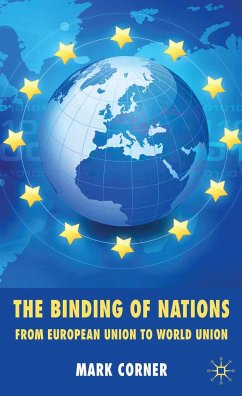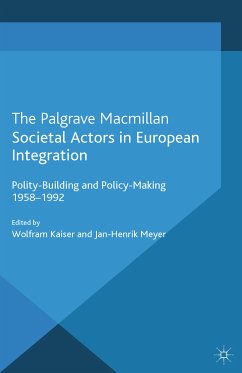
Societal Actors in European Integration (eBook, PDF)
Polity-Building and Policy-making 1958-1992
Redaktion: Kaiser, W.
Versandkostenfrei!
Sofort per Download lieferbar
40,95 €
inkl. MwSt.
Weitere Ausgaben:

PAYBACK Punkte
20 °P sammeln!
Contributors to this volume outline how societal actors have been closely involved in European integration from the founding of the EU to the Maastricht Treaty. Based on newly accessible sources, the authors discuss the participation of political parties, business groups and civil society organizations in European polity-building and policy-making.
Dieser Download kann aus rechtlichen Gründen nur mit Rechnungsadresse in A, B, BG, CY, CZ, D, DK, EW, E, FIN, F, GR, HR, H, IRL, I, LT, L, LR, M, NL, PL, P, R, S, SLO, SK ausgeliefert werden.



